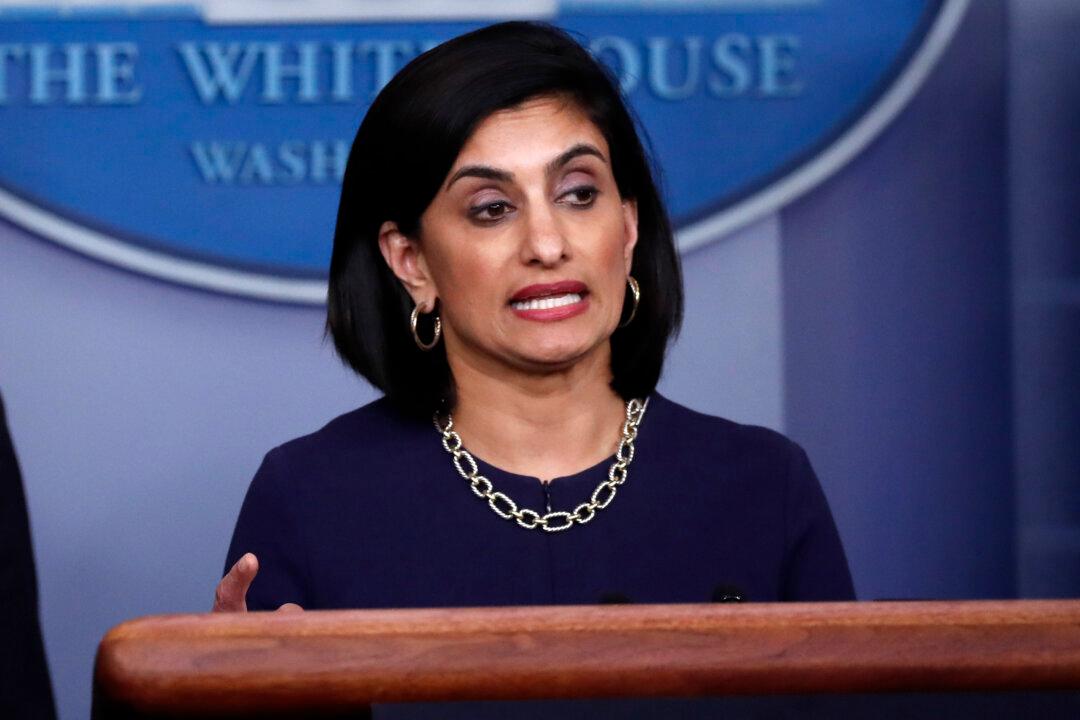WASHINGTON—The head of the Medicare and Medicaid programs failed to properly manage more than $6 million in communications and outreach contracts, giving broad authority over federal employees to a Republican media strategist she worked with before joining the Trump administration, a government watchdog said in a report (pdf) released Thursday.
Seema Verma, administrator of the Centers for Medicare and Medicaid Services (CMS), and other agency leaders did not administer the contracts “in accordance with federal requirements,” according to the inspector general at the Department of Health and Human Services (HHS). CMS is part of the department.





